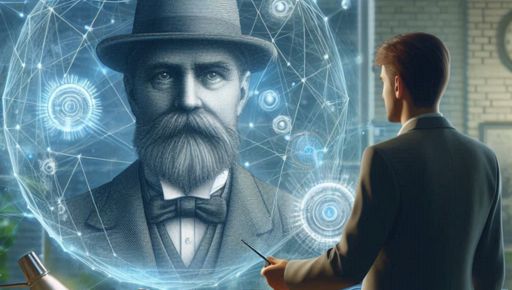Nanotechnology, often regarded as the science of the future, owes its origins to pioneering thinkers and groundbreaking research. As we delve into its roots, the title of the ” Nanotechnology Father” becomes a focal point of discussion. This article explores the history, contributions, and enduring legacy of the individual credited with revolutionizing this field.
Understanding Nanotechnology
What is Nanotechnology?
Nanotechnology is the science and engineering of manipulating matter at the atomic and molecular scale, typically at dimensions between 1 and 100 nanometers. At this scale, materials exhibit unique properties—optical, magnetic, electrical, and mechanical—that differ significantly from their bulk counterparts.
Why is Nanotechnology Important?
Nanotechnology has enabled advancements across various fields, including medicine, electronics, energy, and materials science. From targeted drug delivery systems to highly efficient solar panels, nanotechnology is reshaping the way we approach challenges in modern science and technology.
Tracing the Origins of Nanotechnology
The Early Visionaries
The conceptual foundation of nanotechnology can be traced back to the 20th century. Several scientists and thinkers hypothesized the possibility of manipulating individual atoms long before the term “nanotechnology” was coined.
- Richard Feynman: The Foundational Thinker
Richard Feynman, a Nobel Prize-winning physicist, is often credited with inspiring the nanotechnology movement. In his seminal 1959 lecture, “There’s Plenty of Room at the Bottom,” Feynman envisioned a future where scientists could manipulate atoms and molecules directly. While Feynman did not conduct experiments in the field, his ideas laid the conceptual groundwork for nanotechnology. - The Coining of Nanotechnology
The term “nanotechnology” was officially introduced by Norio Taniguchi, a Japanese scientist, in 1974. Taniguchi described processes involving the precision machining of materials at the nanoscale, solidifying the connection between Feynman’s vision and practical applications.
The Father of Nanotechnology: Eric Drexler
While many individuals have contributed to nanotechnology, K. Eric Drexler is widely recognized as the “Father of Nanotechnology.” His pioneering research, writing, and advocacy have profoundly influenced the development of this transformative science.
Who is Eric Drexler?
Eric Drexler is an American engineer and nanotechnologist who gained prominence in the 1980s. He earned his Ph.D. from the Massachusetts Institute of Technology (MIT), where he focused on molecular nanotechnology. Drexler’s academic and professional journey reflects a lifelong commitment to advancing the understanding and potential of nanotechnology.
Key Contributions of Eric Drexler
1. Molecular Assemblers
Drexler proposed the concept of molecular assemblers—machines capable of manipulating matter at the molecular level to create complex structures with atomic precision. This idea became the foundation for the field of molecular nanotechnology.
2. The Book Engines of Creation
In 1986, Drexler published Engines of Creation: The Coming Era of Nanotechnology, a groundbreaking book that introduced nanotechnology to the broader public. The book described the immense possibilities of nanoscale engineering, including its potential to revolutionize medicine, energy, and manufacturing.
3. Founding Foresight Institute
Drexler co-founded the Foresight Institute, a non-profit organization dedicated to advancing the responsible development of nanotechnology. Through this initiative, he emphasized ethical considerations and the need for oversight in the rapidly evolving field.
Drexler’s Impact on Modern Nanotechnology
1. Advancing Medical Science
Drexler’s vision has inspired numerous breakthroughs in medical nanotechnology. Today, nanoparticles are used for targeted drug delivery, imaging, and even cancer treatment, showcasing the real-world applications of his ideas.
2. Reshaping Material Science
From lightweight yet durable materials to advanced coatings, Drexler’s theories have influenced the creation of novel materials with nanoscale precision.
3. Inspiring Generations of Researchers
Drexler’s work has inspired countless researchers to explore the nanoscale. His focus on molecular machinery continues to guide efforts in nanorobotics and other cutting-edge areas.
Criticism and Controversies
Drexler’s bold predictions have not been without criticism. Some scientists argue that his vision of molecular assemblers and self-replicating machines may not be feasible or pose significant risks. However, despite these debates, Drexler’s ideas remain central to the discourse on nanotechnology.
Honoring the Legacy of the Nanotechnology Father
Why Eric Drexler is the Father of Nanotechnology
Eric Drexler’s theoretical and practical contributions to nanotechnology have earned him the title of the “Father of Nanotechnology.” His ability to bridge scientific concepts with visionary ideas has paved the way for advancements that were once considered science fiction.
A Lasting Influence
Drexler’s legacy is not confined to his own work. His ideas have fostered a global community of researchers, entrepreneurs, and policymakers dedicated to exploring the full potential of nanotechnology.
Conclusion
The journey of nanotechnology from theoretical musings to transformative science is a testament to the vision and dedication of pioneers like Eric Drexler. As the “Father of Nanotechnology,” Drexler’s influence extends far beyond the lab, shaping industries and inspiring future generations. His work underscores the power of imagination and innovation in advancing human knowledge.
The story of nanotechnology is still unfolding, with limitless possibilities on the horizon. And at its heart lies the enduring legacy of a man who dared to dream big—Eric Drexler, the true nanotechnology father.





